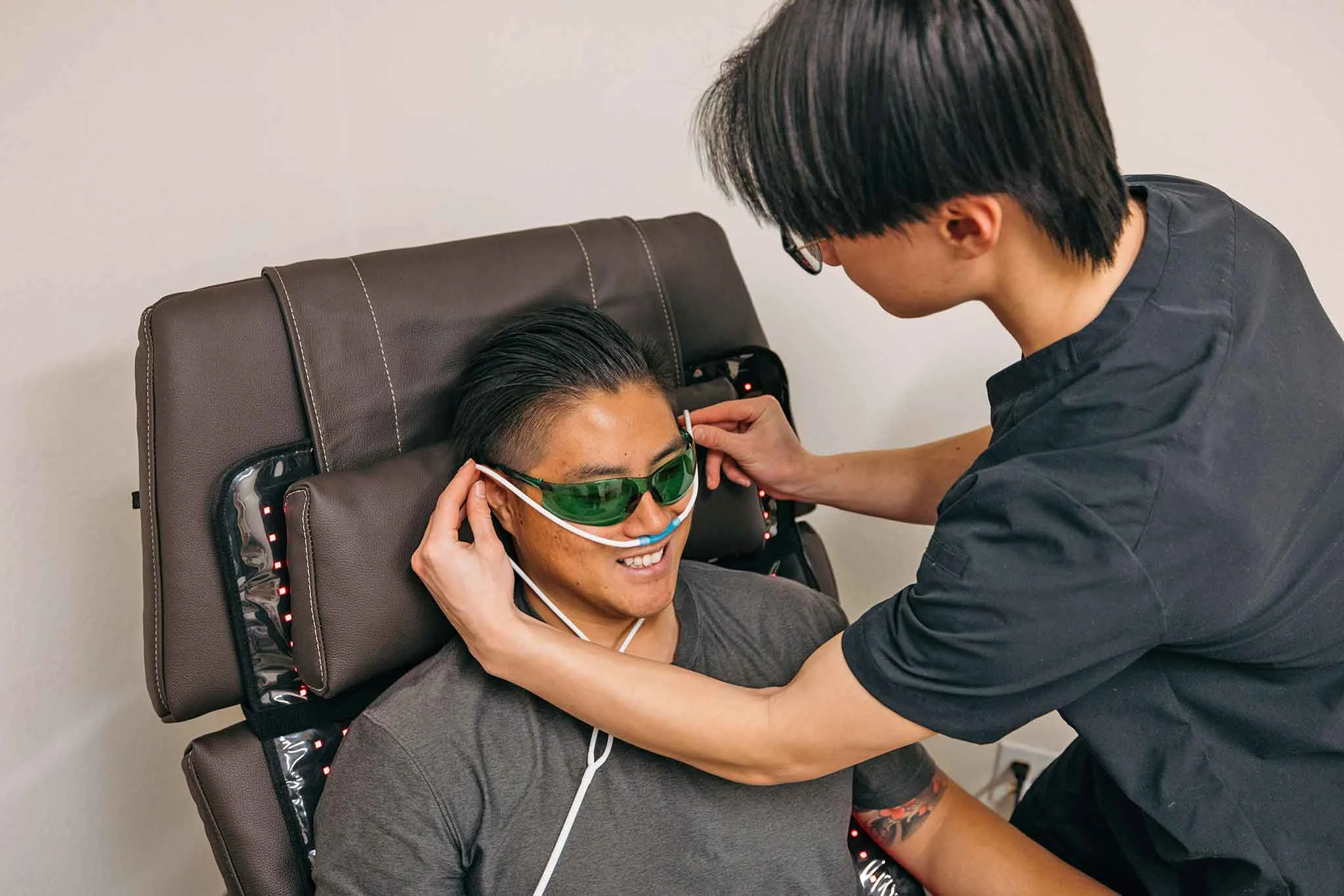The invisible illness
understanding dysautonomia
Dysautonomia is a condition that disrupts the autonomic nervous system, which regulates involuntary functions such as heart rate, blood pressure, and digestion. This can result in various symptoms, including dizziness, fatigue, and trouble regulating body temperature.
A complex
autonomic disorder
Dysautonomia is a group of conditions affecting the autonomic nervous system (ANS), which regulates involuntary bodily functions, including breathing, blood pressure, heart rate, and temperature control. At Norcal Brain Center, we have the treatments and programs to address this condition.
Understanding Dysautonmia,
the invisible illness
Dysautonomia significantly impacts the digestive system, leading to a wide array of manifestations.
- Gastroparesis: Delayed stomach emptying causing nausea, vomiting, and early satiety
- Esophageal dysmotility: Difficulty swallowing, chest pain, and heartburn
- Colonic transit abnormalities: Leading to constipation or diarrhea
- Irritable Bowel Syndrome (IBS): Abdominal pain, bloating, and altered bowel habits
- Small Intestinal Bacterial Overgrowth (SIBO): Resulting from slowed gut motility
- Chronic nausea and vomiting
- Abdominal pain and bloating
- Fecal incontinence due to loss of anal muscle tone
- Malnutrition and weight loss due to impaired nutrient absorption and reduced intake
- Potential need for parenteral nutrition in severe cases
Managing
dysautonomia
Dysautonomia conditions, including Postural Orthostatic Tachycardia Syndrome (POTS) and other forms of orthostatic intolerance, affect a significant portion of the population. These disorders, while often overlooked, require increased awareness, improved diagnosis, and better treatment options
Of patients are disable
Americans are impacted by POTS
Is the average time to diagosis
Females are POTS patients
Understanding
the symptoms
Many factors can lead to dysautonomia—there is no single cause. Dysautonomia is often reported following surgeries, head injuries, illnesses, or vaccinations. A genetic cause may also exist, as it has been observed to run in families.
Often, individuals are unaware that they have dysautonomia; they only recognize that they are experiencing abnormal symptoms. View our treatments.

Common symptoms of dysautonomia
The root cause of the conditions
These manifestations of dysautonomia can significantly impact the quality of life and may require comprehensive management strategies involving dietary modifications, medications, and, in some cases, nutritional support therapies.
A Comprehensive Overview Approach
- Cardiovascular Issues
- Heart palpitations or racing
- Chest pain
- Orthostatic intolerance (difficulty maintaining upright posture)
- Fainting (syncope) or near-fainting (presyncope)
- Neurological Symptoms
- Headaches, including migraines
- Brain fog (cognitive difficulties)
- Dizziness and lightheadedness
- Mood and Sleep Disturbances
- Anxiety
- Depression
- Sleep disorders
- Gastrointestinal Problems
- Nausea
- Vomiting
- Diarrhea
- Circulatory Issues
- Discoloration of hands and feet
- Temperature dysregulation
- Pain and Discomfort
- Muscle and joint pain
- Fatigue and exercise intolerance
Diagnostic Approach to Dysautonomia
Our cutting-edge program integrates a diverse array of therapies, each precisely calibrated to address your specific areas of deficit.
Advanced Neuro-Vestibular Testing
- High-precision computerized eye movement recording
- Assesses vestibular function and identifies subtle abnormalities
- Crucial for detecting vestibular contributions to dysautonomia symptoms
- Analyzes balance control under various sensory conditions
- Quantifies the interplay between visual, vestibular, and somatosensory systems
- Helps identify specific deficits contributing to balance issues in dysautonomia
Computerized Dynamic Posturography
- High-precision computerized eye movement recording
- Assesses vestibular function and identifies subtle abnormalities
- Crucial for detecting vestibular contributions to dysautonomia symptoms
Additional Diagnostic Tools
- Customized blood panels to screen for:
- Hormonal imbalances
- Nutritional deficiencies
- Inflammatory markers
- Autoimmune indicator
- Tilt table test for orthostatic intolerance
- Quantitative sudomotor axon reflex test (QSART) for sweat gland function
- Heart rate variability analysis
- MRI to rule out structural abnormalities
- SPECT or PET scans for functional neuroimaging
Treatment Approach for Dysautonomia
Dysautonomia is a group of conditions affecting the autonomic nervous system (ANS), which regulates involuntary bodily functions, including breathing, blood pressure, heart rate, and temperature control.
Our integrative approach ensures that each aspect of dysautonomia is addressed, maximizing the potential for symptom relief and improved quality of life. We continuously adapt our treatment plans based on the latest research and individual patient responses.
This disorder encompasses various subtypes, such as:
- Customized exercises to improve autonomic function
- Vestibular rehabilitation for balance and dizziness issues
- Cognitive training to address “brain fog” and cognitive symptoms
- Personalized dietary plans focusing on anti-inflammatory and gut-healing foods
- Hydration and electrolyte balance strategies
- Sleep hygiene optimization
- Stress reduction techniques (e.g., mindfulness, biofeedback)
- Vagal nerve stimulation to regulate autonomic function
- Trigeminal nerve stimulation for symptom management
- Transcutaneous electrical nerve stimulation (TENS) for pain relief
- Low-level laser therapy for cellular energy production
- Hyperbaric oxygen therapy to improve tissue oxygenation
- Neurofeedback for autonomic regulation
Find Out if Norcal Brain Center is Perfect for You.
Schedule a complimentary 20-minute consultation online, or contact our patient care coordinators by phone.




